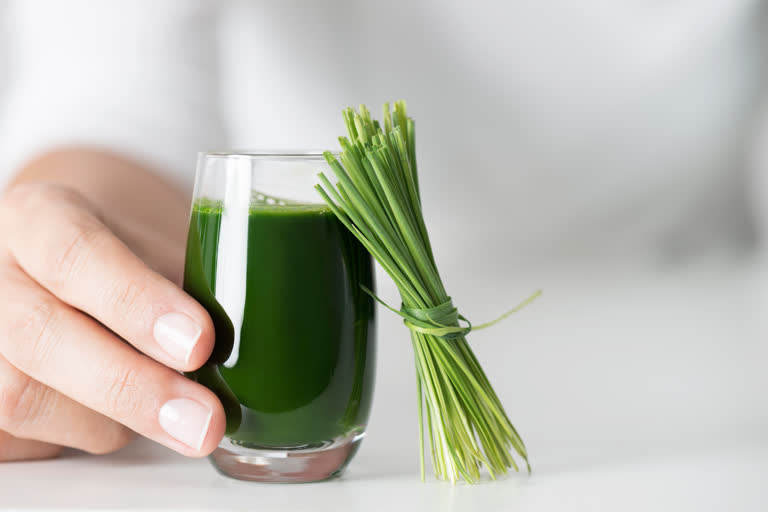A new name has been recently added to the list of healthy foods, as we are going deep into a health-conscious world, called ‘Wheatgrass’. It's nothing but fresh leaves of the wheat plant, harvested at an early stage before it matures completely. Botanically known as Triticum aestivum, it belongs to the Poaceae family. Usually consumed in the form of juice, however, it is also available in powdered form. Dr. Rajyalakshmi Madhavam, MD Ayurveda, Professor at AMD Ayurvedic Medical College, Hyderabad says, “Wheatgrass has grown popular as it is rich in vitamins A, B, C and E and minerals like sodium, potassium, iron, magnesium, calcium, zinc and selenium. This is the reason it is considered very healthy and has several health benefits”.
Benefits
Here are some of the health benefits as explained by Dr. Rajyalakshmi:
- Anaemia
Wheatgrass contains high amounts of chlorophyll, which is why its juice is also referred to as the ‘Green Blood’. The chlorophyll present in the wheatgrass resembles the haemoglobin or the heme molecule in our body. Which is why it is considered very useful in anaemia. It improves the oxygen-carrying capacity to the different parts of our body. - Antioxidant
It is a very good source of antioxidants. Antioxidants are required by our body to fight the free radicals that may cause damage to the cells in our body and reduce oxidative stress. Therefore, wheatgrass helps in working against free radicals and eliminating other toxic substances. - Anti-inflammatory
As a means to protect our body from any injury or infection, our immune system responds in the form of inflammation. Swelling, redness or pain can be signs of it. Therefore, wheatgrass having higher contents of chlorophyll has anti-inflammatory properties. - Diabetes
Studies have shown that wheatgrass helps in regulating the blood sugar levels in the body. It is said that the compounds present in the wheatgrass have properties which are similar to that of insulin, lowering the blood sugar levels. - Boosts Immunity
Wheatgrass is also known to improve immunity. Our immune system helps in fighting the harmful, disease-causing microorganisms and recovering from the infections quickly. In today’s uncertain times, where we are living with the COVID-19 pandemic, we need to keep our immune system strong and thus, wheatgrass can be helpful.
Apart from these, wheatgrass can help in lowering the cholesterol levels, easing digestion process, improving the cognitive functions and in arthritis. Some studies have also shown that wheatgrass may be beneficial in preventing and treating certain cancers.
Dosage of Wheatgrass:-
Dr. Rajyalakshmi recommends that consumption of wheatgrass should be avoided at the time of pregnancy and during the lactation period. Most commonly, people consume the fresh juice of wheatgrass and its dosage can vary from 10-20ml added to 100ml of water, preferably on an empty stomach because then the absorption of nutrients will be more.
However, it is always recommended that you first talk to a doctor before consuming anything as its effects may vary from a person to person. A doctor will recommend you the dosage according to your health conditions and therefore, medical supervision is strongly recommended.



